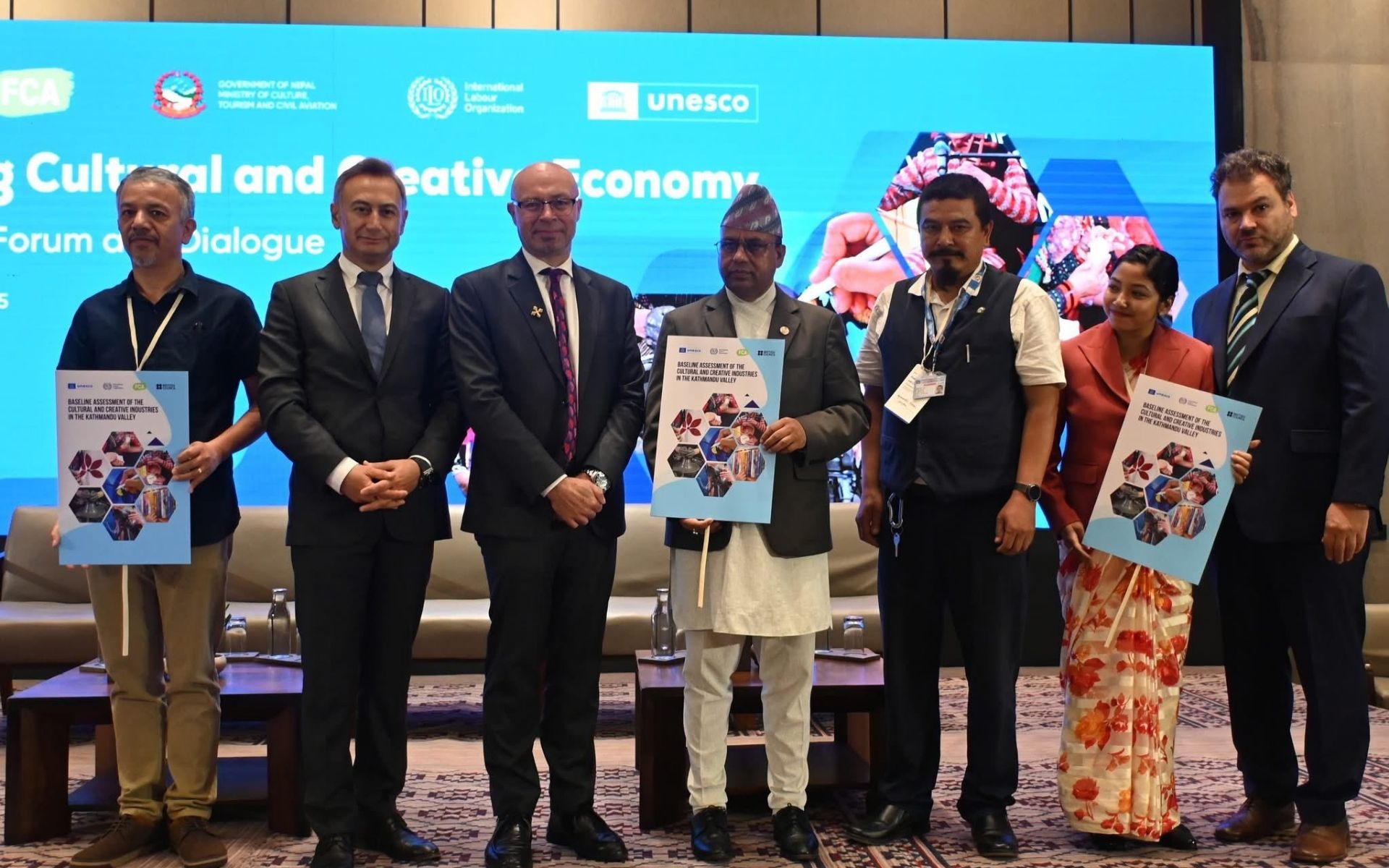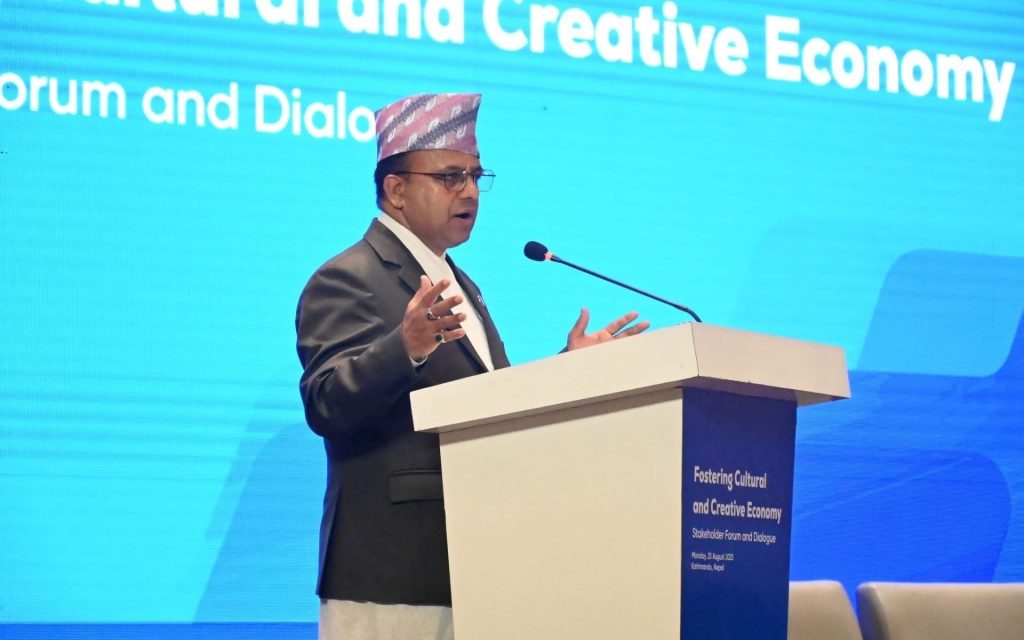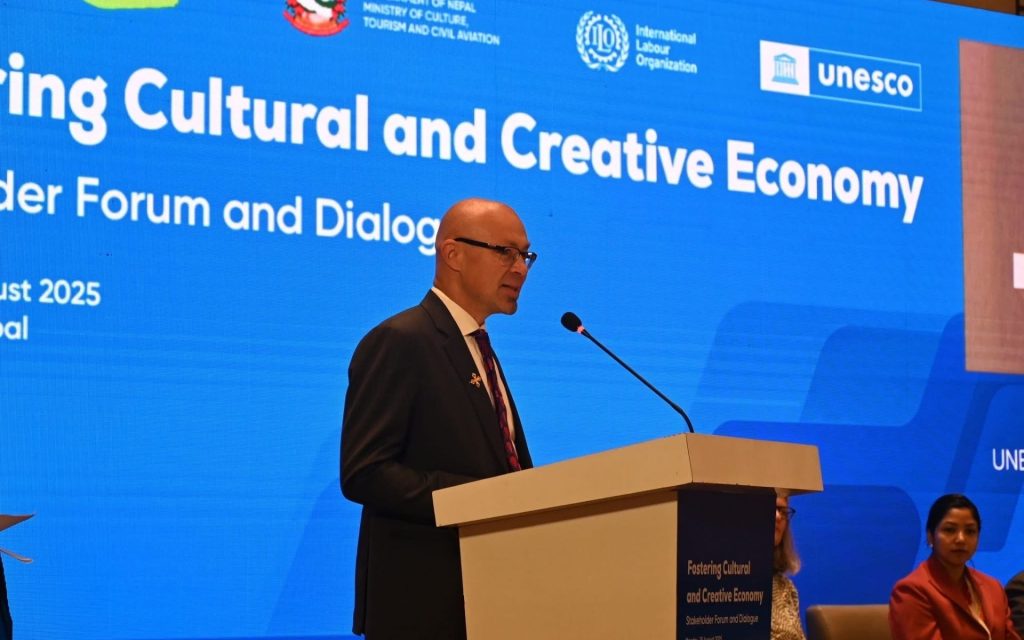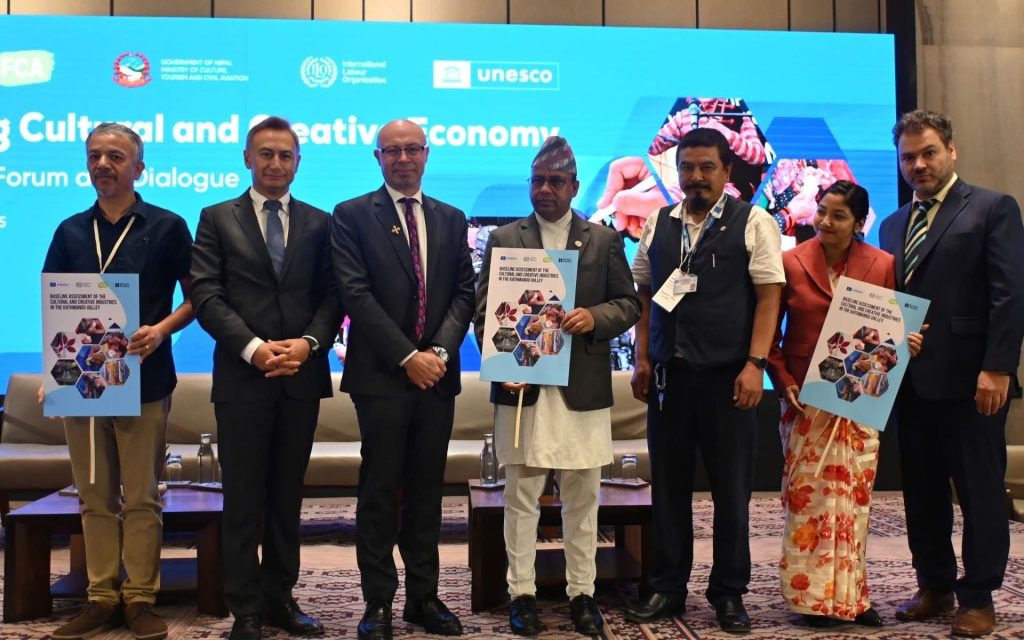

 18.71°C काठमाडौं
18.71°C काठमाडौं

Kathmandu: The United Nations Educational, Scientific and Cultural Organization (UNESCO), the International Labour Organization (ILO), and the British Council, in partnership with the Ministry of Culture, Tourism, and Civil Aviation and FCA Nepal, organized the Stakeholder Forum and Dialogue on Cultural and Creative Economy in Kathmandu.
According to UNESCO, this forum provided a crucial platform for Nepal’s diverse stakeholders from creative and cultural sectors to collectively examine the gaps and challenges within the sectors and commit to leveraging the nation’s rich cultural heritage into a sustainable, job-creating, green economic powerhouse.
“The Ministry duly recognizes the importance of cultural and creative industries, and the new policy reflects our seriousness in recognizing its share. We will continue to adapt and update our policies and laws to ensure that they reflect the needs of our hard-working practitioners, representing all these sectors and who are here with us at this event today,” said Badri Prashad Pandey, Minister for Culture, Tourism, and Civil Aviation.

During the forum, the findings and the recommendations from the Baseline Assessment of the Cultural and Creative Industries of Kathmandu, namely Kathmandu Metropolitan City, Lalitpur Metropolitan City, and Bhaktapur Municipality, were shared.
Moreover, the assessment revealed the cultural richness and heritage of Kathmandu Valley. It highlighted youth as the driving force in the Valley’s creative sector (84% out of 959 {313 women, 636 men} respondents were under the age of 45).
“The Creative and Cultural Industries are a powerful economic force providing decent work opportunities, especially for women and youth. Nepal can harness the potential of the Creative and Cultural Industries to drive economic growth, create jobs, and empower its diverse and talented population,” said Jaco du Toit, UNESCO Representative to Nepal.

The event provided opportunities for industry practitioners, entrepreneurs, practitioners, policymakers, researchers, relevant municipal authorities, government representatives, and international development partners to get to know the findings of the report and strengthen networking for future collaboration.
“This is a timely initiative and we are delighted to be a part of this work. This research fills an important knowledge gap in the creative sector and helps identify the roles that the government, the development and private sectors and culture entities can play to create a thriving creative economy,” said Rustom Mody, Country Director, British Council in Nepal.
“Culture is, undeniably, a vehicle that can drive sustainable development forward. For example, in the UK, the sector serves as a powerful component of economic growth, generating £124 billion in Gross Value Added (GVA) and supporting 2.4 million jobs. The case is not very different in Nepal, a nation that champions cultural identity and creative expression. The research findings and the conversations we have had today is a start to understanding how we all can contribute to fostering a diverse, inclusive and sustainable Nepali creative economy.”
A key moment of the event was the formal handover by the partner institutions of the final report of the baseline assessment of the cultural and creative industries in Kathmandu Valley to Minister Pandey, Sunita Dangol, Deputy Mayor of Kathmandu Metropolitan City, and a representative of the Lalitpur Metropolitan City.

Referring to the joint report, the ILO Country Director Numan Özcan said, “The cultural and creative industries hold immense potential to create decent jobs and foster inclusive growth in Nepal. This sector provides unique opportunities for women and young people to participate in the labour market while preserving Nepal’s rich heritage and identity. We are committed to supporting policies and initiatives that ensure these industries grow sustainably, with fair working conditions and social protection at the core, so that creativity truly becomes a driver of decent work and prosperity for all.”
The forum concluded with a strong sense of unity and purpose among the stakeholders. The handover of the assessment report marked the beginning of a new chapter in collaboration between the government, creative industries experts, development organizations, entrepreneurs, and practitioners.